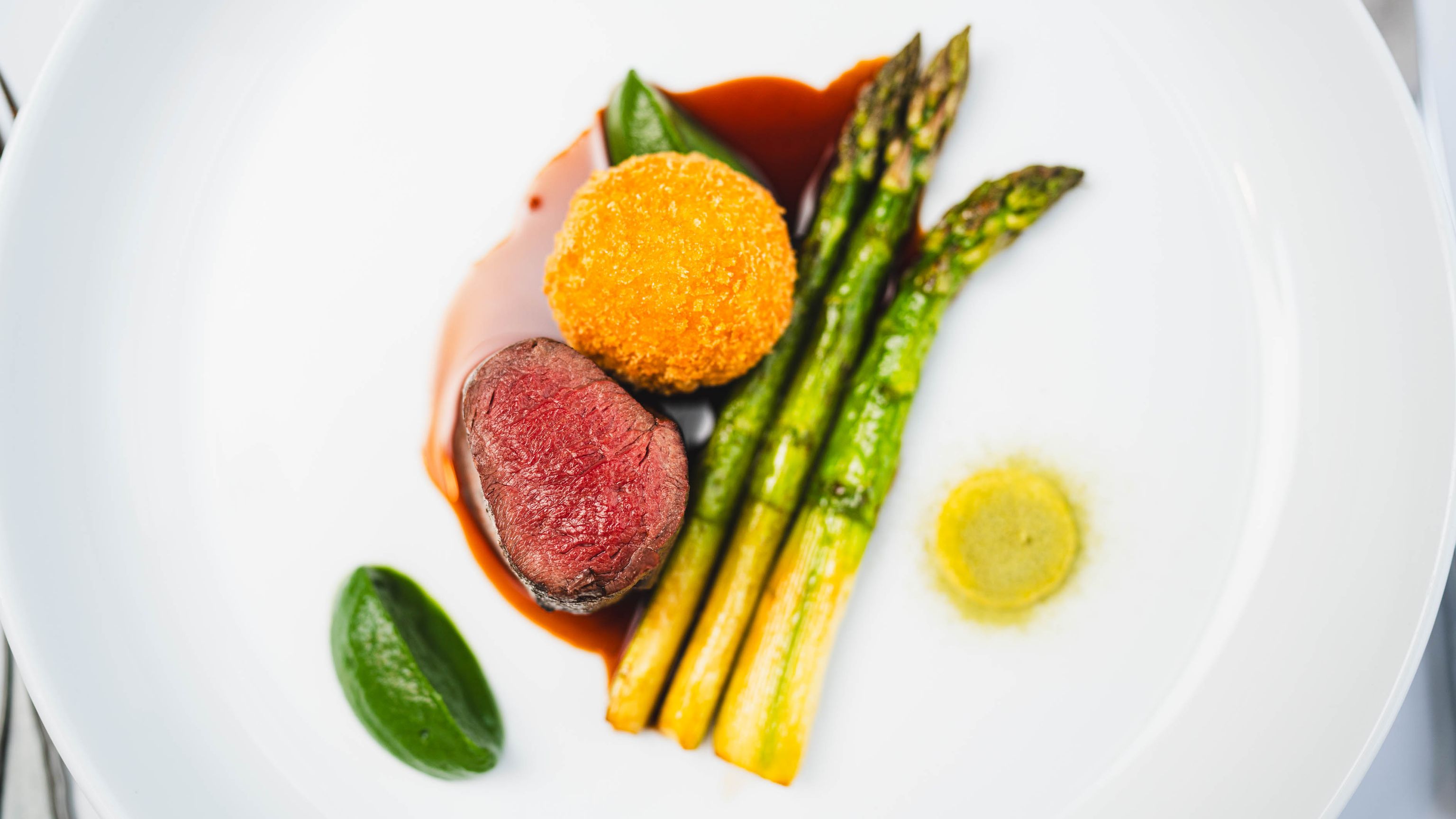Food with meaning: The philosophy behind Skåbu Fjellhotell

- Home
- Food Experiences
Meaningful Food: The Philosophy of Skåbu Mountain Hotel
Last updated December 2025
Our philosophy is simple, but uncompromising: animals should live a good life, ingredients should be traceable, and the dining experience should taste as much of ethics as of mountain air and culinary discernment.
Perched on a mountainside in Gudbrandsdalen, surrounded by magnificent nature lies Skåbu Fjellhotell. It's not just a place to stay – but an arena for food with meaning. Here, the focus is not on locally sourced food because it is trendy, but because it is the right thing to do.
A meaningful procurement model
"We could have chosen to order everything from one of the major food suppliers. Then we would have had the usual milk you find in every shop. But we have chosen to do things differently," says Jannicke, who owns and runs Skåbu Fjellhotell with her partner Henrik.
Behind the warm glow of the kitchen lies an impressive and unique system for selecting ingredients: 'the Skåbu model'. Imaginer a circle where Skåbu is in the centre, followed by Gudbrandsdalen. Then the radius widens to three and a half hours – stretching to Oslo, Trondheim, and Røros. Then comes the rest of Norway, then Europe. Ingredients should preferably not come further away than that.
"We want to contribute to more self-sufficiency in Norway. This means that if I can choose between potatoes from Sør-Fron and Spain, then I'll choose those from Sør-Fron. It's that simple. And that important," Jannicke says with conviction.
Milk in pails and rakfisk in the middle of summer
Nothing is left to chance. The milk is sourced from local farmer Jørn. His aunt drops it off after work every Thursday. In this way, the hotel can get milk with a local name and history – delivered with warmth.
And the rakfisk? The Norwegian salt-cured fish is often served in the middle of summer.
"It may be a bit unusual, but we do it to convey its story. Why did people eat 'rotten' fish? Because fermentation was the only way to have fish in the winter," says Jannicke, adding that rakfisk, a delicacy, naturally does not taste like rotten fish at all.
We want to contribute to more self-sufficiency in Norway. This means that if I can choose between potatoes from Sør-Fron and Spain, then I'll choose Sør-Fron.
Meat with roots and root vegetables of good stock
There are not many vegetable gardens in Skåbu, but they provide excellent stock.
"Broth and meat are at the very heart of our food. Livestock that have roamed freely, lived naturally and been cared for. This provides both flavour and meaning. This applies to vegetables as well. When they grow slowly and correctly, they acquire the flavour we are looking for," says Jannicke.
Preservation techniques such as fermentation and curing ensure access to local ingredients throughout the year through traditional means.
The animals are not an ingredient. They are co-creators.
"A pig must be allowed to dig, roll in the soil, wander off to rest. It's about respect. When they first arrive, they can barely walk as they have been standing still all their lives. But after a few weeks, they are on the move. They come to life.
It's not about romanticising anything. It's about our responsibility for the world we live in and must take care of."
Traditional Norwegian traditional food – local, genuine and ambitious
Lukasz, the head chef, is extremely focused on good ingredients and continual improvement. He dreams of securing a Michelin star. In fact, Restaurant Skadir has already achieved three circles in the 360° Eat Guide, Michelin's little sister.
"We are one of three restaurants in Norway that have the rating. We maintain a Michelin level. And if they were to come visit us here in Skåbu, I think we could get a green star," says Jannicke.
Skåbu Fjellhotell's menu is based on natural food from the fjords and mountains, with flavours based on traditional Norwegian food combined with modern techniques and precision.

A culinary event in every meal
Culinary experiences at Skåbu Fjellhotell are not about white tablecloths and formal settings, but about curiosity, knowledge and sharing. Guests learn where their food comes from (often right outside the door), and can take part in foraging, courses and the conversations around the long tables.
For guests, it is clear that Hotel Skåbu is not like other places. It's about the atmosphere – the calm rhythm, the closeness to nature, the warm conversations over the table, and the feeling of being part of something real.
A protest against the industrial
The values run deep for both chef Lukasz, Jannicke and Henrik. Jannicke believes that her upbringing, her parents' attitudes, life as a vegetarian and her quiet protest against industrial food form the foundation of her vision for Skåbu Fjellhotell.
"I think it started when I was little. It's about understanding that what we eat matters. That food affects our health and the world we live in."
For the team at Skåbu Fjellhotel, it's not about making everything perfect, but about making better choices, one by one. The food at Skåbu Fjellhotell is rooted in the soil, in the livestock, in the people and their stories.
"We want our guests to feel that what they eat has meaning. That it is made with love and care. And that they can maybe go home inspired to make one small change," says Jannicke.
Because even in today's fast-moving world, there are still places like Skåbu. Places where everything happens slowly. Deliberately.
We are one of only three restaurants in Norway with three circles in the 360° Eat Guide. We maintain a Michelin level.








